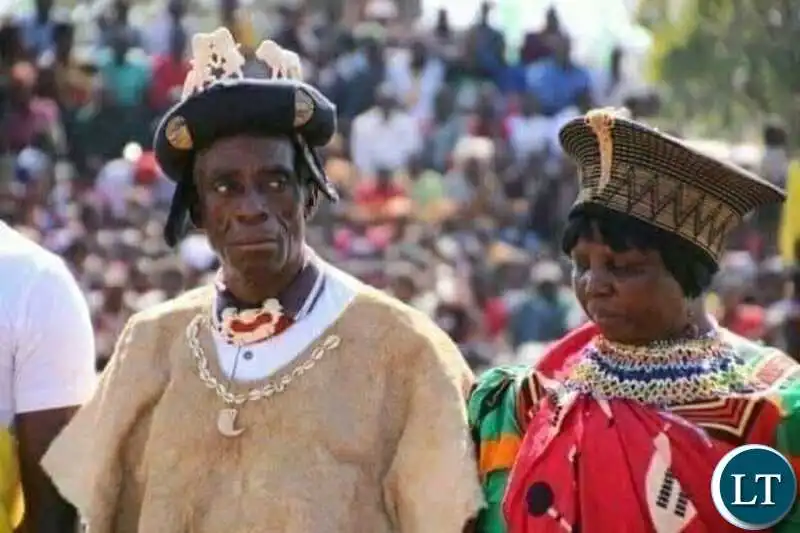By Chisha Banda Lusaka Times Editor
LIVINGSTONE – Senior Chief Mukuni of the Toka Leya people has issued a scathing critique of former president Edgar Lungu, accusing him of sowing seeds of division during and after his time in office. In a candid statement during a public event in Southern Province, the respected traditional leader said Lungu’s leadership had eroded national unity and left behind a fractured Zambia.
“Instead of building bridges, he chose to build walls,” Chief Mukuni said. “Even now, out of office, his actions continue to inflame divisions.”
The remarks come amid heightened political tension following national debates around the burial of Lungu and the handling of his remains by his family. While the government has called for respect and dignity, some PF-aligned voices have framed recent events as examples of state persecution. Chief Mukuni’s comments cut through this narrative with surgical clarity.
“Zambians must reject those who play victim after causing harm,” he said. “Let us not forget the intolerance, the tribalism, and the violence that gained strength under his regime.”
The chief’s bold statement will widespread public and political reaction. Civil society groups, UPND officials, and ordinary citizens have welcomed his words as a timely reminder of the importance of unity and national healing. PF supporters, however, have condemned the comments, labelling them politically motivated and disrespectful.
Political analyst Dr. Jackson Zulu noted that Chief Mukuni’s comments were not mere opinion but a deliberate attempt to reframe national memory. “He’s confronting revisionist history,” Zulu said. “The PF wants to paint Lungu as a statesman unfairly targeted. Mukuni is reminding us of the lived experience under that administration division, suppression, fear.”
Indeed, Chief Mukuni has long been an outspoken critic of the former regime. He himself was arrested under Lungu’s government on what many believe were politically motivated charges. His current position echoes the sentiments of many traditional leaders who now feel emboldened to speak after years of silence.
UPND Secretary General Batuke Imenda praised the chief’s remarks, saying, “We must never allow a return to the days where tribal identity dictated opportunity or security. The chief has spoken truth to power.”
Even outside the political circles, religious and civic voices are resonating with Mukuni’s sentiment. Pastor Evelyn Mwewa of the Interfaith Council said in a radio interview, “Leadership that divides, even subtly, is leadership that damages the soul of a country. Mukuni is not being divisive he is calling for healing.”
But the PF isn’t taking the criticism lightly. Party acting president Given Lubinda issued a rebuttal, stating, “It is disappointing that a traditional leader would lower himself into partisan attacks. We urge all royal establishments to remain nonpartisan and unify, not divide, our people.”
The conversation has reignited the public’s focus on the role of traditional leaders in Zambia’s political discourse. While some argue that chiefs should stay above politics, others insist that silence in the face of injustice is complicity.
Mukuni, undeterred, remains firm. “I am a custodian of culture and truth,” he told reporters. “If politicians fear the truth, they must change not silence the messenger.”
As Zambia inches closer to the 2026 general elections, the stakes are rising. Political memory is now a battlefield, and voices like Chief Mukuni’s are refusing to let history be whitewashed or weaponised.
In a nation still grappling with tribal tensions, economic recovery, and political mistrust, the words of a royal elder seasoned by time and tested by power carry more weight than ever.
